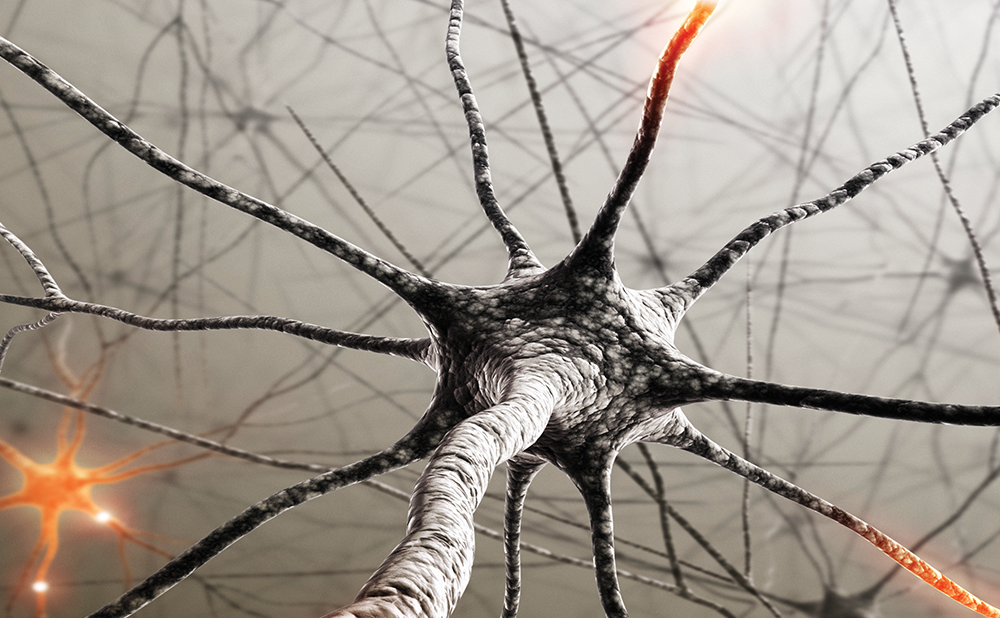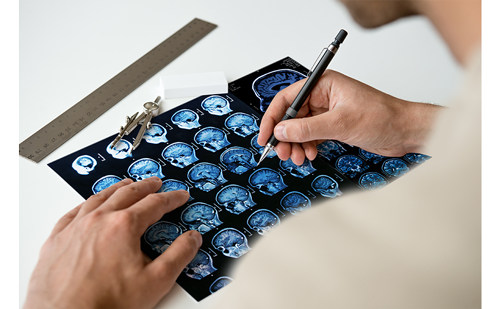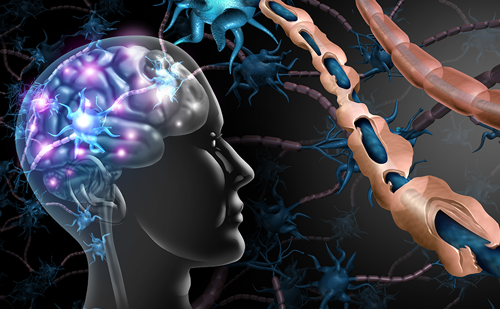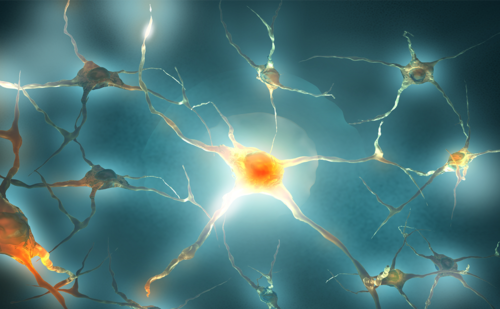Multiple sclerosis (MS) is a chronic inflammatory demyelinating disorder of the central nervous system (CNS), described by Jean Charcot in 1868.
It has an estimated prevalence of 100–150/100,000 population, an annual incidence of 3.5–7/100,000 cases and typically presents at 20–40 years of age. The pathophysiology is still unclear, but immunological mechanisms seem to play an important role in disease development and progression.1–3
Cognitive impairment (CI) associated with MS has been thoughtfully studied only over the past 30 years. The reason is that in the 19th century MS was perceived exclusively as a white matter (WM) disease, and cognition was thought to depend solely on the cortex.4,5 The improvement of imaging techniques led to a better understanding of cortical and subcortical networks, and it is now recognised that these cortical– subcortical connections are responsible for cognitive functioning.4
This article aims to review the prevalence, risk factors, profile and diagnosis of CI in MS. Imaging correlates and treatment will also be briefly discussed.
Prevalence of Cognitive Impairment in Multiple Sclerosis
Over the past years, CI has been established as a serious comorbidity in MS patients.
According to Rao et al.6 and Amato et al.,7 prior to the introduction of disease-modifying drugs (DMDs) the prevalence of CI in MS was 40–65 %. Amato et al.7 found that the frequency of CI increased from 26 % at baseline to 56 % in a follow-up period of 10 years. The longest longitudinal study published to date followed the patients initially recruited for phase III clinical trial of interferon beta-1a (IFN-b1a) in the early 1990s for 18 years and found similar rates of cognitive decline (41–59 %).8 Thus, while CI is more prevalent with disease progression, 26–41 % of patients in early stages of MS exhibit CI.9–11
An important aspect concerning the prevalence of CI in MS refers to the socioeconomic impact. Studies suggested that CI in MS is associated with unemployment and social isolation6,7 and that the cognitive decline determines the unemployment status.12,13 A decrease of 2.0 points on the California Verbal Learning Test Second Edition—Transient Recall (CVLTII– TR) raw score and/or of 4.0 on the Symbol Digit Modalities Test (SDMT) raw score were found as determinants of loss of employment.13
Risk and Protective Factors of Cognitive Impairment in Multiple Sclerosis
Recently, there has been an increased interest in the identification of specific risk and protective factors of cognitive decline in MS.14
In general, ageing is strongly correlated with cognitive deterioration. In MS, a cross-sectional study found that age is correlated with CI but in a similar degree to healthy controls.15 In a longitudinal study of early onset MS, ageing was associated with increased decline on neuropsychological testing.7 Conversely, in paediatric MS, an early age of onset seems to carry a poor cognitive prognosis.16
Male patients have shown a poor performance in cognitive batteries compared with female patients,17,18 which was associated with disease duration, Kurtzke Expanded Disability Status Scale (EDSS) score, a low level of education and epsilon4 (ε4) allele of the apolipoprotein E (APOE) gene.18
Concerning ethnicity, one study found higher cognitive morbidity in African-American patients compared with Caucasian, but this finding was not statistically significant after controlling for socioeconomic status.19
APOE, human leukocyte antigen (HLA)-DR15 and variations in brainderived neurotrophic factor (BDNF) were suggested as possible genetic factors of CI in MS. APOE gene, encoding APOE, has been widely studied in cognitive functioning and is a genetic risk factor for Alzheimer’s disease.20 However, in MS, the role of APOE gene for CI is still controversial. Some studies indicate that MS APOE ε4 carriers are at increased risk of brain atrophy19,21–26 as well as CI.27 However, recent studies do not confirm the hypothesis that APOE ε4 allele status presents a substantial risk of CI in MS.28–30 HLADR15, an important genetic factor to MS risk, is not associated with an increased risk of CI.31 Genetic variations in BDNF, particularly the Val66Met polymorphism, may have a correlation with CI measures in MS.32
The lifetime prevalence of major depression in MS patients approaches 50 %.33 It is known that depression is associated with cognitive functioning in MS.34,35 Recently, Nunnari et al.36 found that a group of depressed patients with MS had worse performances on an extensive cognitive battery, greater disability, longer disease duration and reduced brain volumes compared with non-depressed patients. The authors also showed that the Beck Depression Inventory-II (BDI-II) score was a significant predictor for most of the neuropsychological tests. However, the definite role of depression on CI is still uncertain.
Fatigue is a common complaint in MS and is estimated to affect 90 % of patients.37 Fatigue is composed of a physical domain and a cognitive domain and strongly affects patients’ ability to work and their quality of life. While many patients report that fatigue lowers their cognitive performance, a direct association between cognitive deficits and fatigue has not been clearly documented.38 Krupp et al.39 suggested that cognitive decline of MS patients may cause increased fatigue, but increased fatigue does not generally result in poorer cognitive performance. Moreover, there is a robust correlation of self-reported fatigue and subjective, but not with objective, cognitive performance rating.40
Nonetheless, CI is a frequent finding in early MS and increases with disease progression; some patients can withstand considerable disease burden without CI.41,42 The concept of ‘cognitive reserve’ refers to the individual variation in cell number, dendritic density and other neuronal factors that mediate increased activation of usual or alternative neural networks, allowing adaptation in the setting of cerebral disease.43 This theory is known from studies on Alzheimer’s disease and suggests that heritable, genetic (maximal lifetime brain growth [MLBG]) and environmental (intellectual enrichment) factors contribute to reserve against diseaserelated cognitive decline.44 Thus, persons with higher reserves tolerate a greater degree of brain atrophy without CI symptoms. The cognitive reserve theory supports an interaction between cognitive individual status and disease burden, in which individuals with higher reserve (estimated with MLBG or intellectual enrichment) seem to be protected from CI.45,46
This theory has been supported by cross-sectional studies on CI in MS.46–49 Few longitudinal studies were also designed to investigate this subject. Sumowski et al.50 found that higher cognitive reserve (measured by years of education and score on an intelligence battery) protects against the progression of CI in MS during 5 years of followup. Benedict et al.51 showed that a higher cognitive reserve (based on education, premorbid leisure activities and patient IQ) predicted a better performance in neuropsychological examination, independent of brain atrophy and demographic characteristics, only in baseline. However, during the follow-up period of 1.6 years, the patients showed only a small decline in cognitive performance,51 which was hypothesised to obscure the possible effect of cognitive reserve.52
Recently, Sumowski et al.53 published a longitudinal study evaluating the effect of reserve in cognitive efficiency (through SDMT and Paced Auditory Serial Addition Task) and memory (using the Selective Reminding Test [SRT] and Spatial Recall Test). In contrast to previous longitudinal studies, the authors analysed the reserve through structural (MLBG, estimated with intracranial volume) and cognitive (intellectual enrichment, using vocabulary) measures and concluded that both protect against decline in cognitive efficiency, with intellectual enrichment seeming to additionally protect memory decline.53
Domains of Cognitive Impairment
The most frequently impaired domains in MS are working memory, visual and verbal memory,6,54–56 attention,6,54–57 information-processing speed6,57,58 and executive function.6,59 By contrast, language is less frequently impaired.6 Generally, intelligence measures seem to be intact.60
Nonetheless, the severity of CI is quite distinct among MS patients; it usually worsens as the disease progresses.60
Memory
Memory dysfunction appears to be one of the most frequently affected domains in MS patients,61–63 which is estimated to affect 40–60 % of patients even in early disease stages.64
Short-term explicit memory appears to be intact or mildly affected in MS patients.65,66 However, long-term explicit memory appears as the most impaired memory component, predominantly for visual and verbal contents.62 Working memory also seems to be frequently affected.61 Finally, implicit memory is considered to remain stable.63
The mechanisms of memory dysfunction in MS are still uncertain. Former studies suggest that memory deficits are caused by disturbances in information retrieval from long-term storage.67,68 However, recently, memory deficits are believed to result from impaired encoding and information storing processes.69,70 Thus, MS patients need more attempts in verbal memory tests to encode information, compared with controls.71 In relation to the autobiographical long-term memory, the data are scarce.6
Speed of Information Processing and Attention
A reduced speed of information processing is the most common abnormality regarding CI in MS patients72,73 and usually is associated with some degree of impairment in other cognitive domains, such as working memory and long-term memory.74 Thus, in some studies, the extent of memory impairment has been positively correlated with processing speed impairment.75,76 Furthermore, the processing speed may have a prognostic value by predicting long-term cognitive decline.73 The speed of information processing is also associated with impairment in attention.5
Attention deficits are estimated to affect 12–25 % of patients.5 While basic attention tasks are usually spared,62 complex attention tasks such as selected attention and divided attention are frequently impaired.6
However, it should be emphasised that it may be difficult to analyse attention independently, due to the difficulty in distinguishing their tasks from tasks of information-processing speed or executive control.77 Moreover, studies need to address the fatigue as a possible confounding factor, especially when performing long and more demanding tasks.5
Executive Functions
Executive dysfunction is estimated to affect almost 19 % of MS patients,6 which is correlated with frontal lobe lesions.78 The performance in executive functioning tasks may be influenced by depression.79
Visuospatial and Visuoconstructive Skills
Data regarding visuoconstructive and visuospatial abilities are scarce and often conflicting. A quarter of MS people show impairment in visual perceptual functions,80 which resulted from primary visual dysfunction (i.e. optic neuritis) in some.80
Social Cognition and the Theory of Mind
As it is widely known, MS frequently has a negative impact on family dynamics and interpersonal relationships.81 Moreover, this disease has also a neuropsychiatric domain as MS patients have a higher prevalence of depression, anxiety and other psychological disorders.33 Notably, social support and good interpersonal relationships have been shown to reduce the risk of depression and increase the quality of life of these patients82 but critically depend on an intact social cognition.83
Social cognition represents a cognitive domain that comprises abilities for perception and interpretation and generation of responses to the intentions and behaviours of others.84 Included in the concept of social cognition, the Theory of Mind (TOM) refers to a mind reading or mental state attribution that allows us to make inferences about the mental states of others, such as thoughts, intentions or emotions.85
Social cognition and TOM were recently found impaired in MS patients,86–91 which may possibly contribute to the psychosocial burden of MS.91
Different studies suggest that MS patients show a reduced performance in emotion recognition and attribution of mental states either in verbal TOM test (such as Strange Stories Task and the Conversations and Insinuations Video Task)92 or in non-verbal TOM test (such as Mind in the Eyes Test).88,90,93 Using a recently validated Movie for the Assessment of Social Cognition (MASC) that analyses intentions, emotions and thoughts in a more complex manner, Pöttgen et al.91 also found a significantly lower performance in MS patients compared with matched healthy controls and suggested that emotional social cognition was more strongly affected than the recognition of intentions or thoughts of others. The group also characterised the errors as ‘undermentalising’, that is, resulting from insufficient mental state reasoning.91
The anatomic substrate for social cognition seems to be located in superior temporal gyrus, fusiform gyrus, medial prefrontal cortex, amygdala, precuneus and temporal pole.94 Using functional magnetic resonance imaging (fMRI) with tasks of facial emotional recognition, Krause et al.95 found a decreased activation of insular and ventrolateral prefrontal cortex in MS patients with affective disturbances, which was associated with the presence of temporal WM lesions. Thus, it is believed that social CI in MS may result from the damage of the structures included in the ‘social brain network’.
A critical question addressing TOM impairments in MS concerns the hypothetical influence of neuropsychological and neuropsychiatric dysfunctions. While Ouellet et al.89 reported a reduced performance in social cognition tasks only in MS patients with neuropsychological impairment, Pöttgen et al.91 and Phillips et al.96 found that the impairment in social perception persisted even after statistically accounting for neuropsychological dysfunction and depression. Moreover, using fMRI techniques, Jehna et al.97 also showed that the abnormal activation of brain ‘social’ networks during processing of visual stimuli of emotional content may occur even in the absence of cognitive and emotional impairments. However, the studies analysing this relationship are scarce and rely on small samples, so it is still uncertain whether TOM impairments in MS depend on neuropsychological and neuropsychiatric abnormalities.
Cognition and Multiple Sclerosis Subtypes
While most information regarding cognition in MS comes from studies involving patients with relapsing-remitting multiple sclerosis (RRMS), others have characterised the cognitive profile of progressive MS and compared with RRMS.71,98–102 The cognitive performance in the progressive forms has been consistently shown to be poorer than in RRMS.98,99 However, studies comparing secondary-progressive multiple sclerosis (SPMS) with primary-progressive multiple sclerosis (PPMS) have yielded contradictory results. In fact, while the majority of the studies reported a more severe impairment in SPMS compared with patients with PPMS,100–102 some studies found out similar cognitive deficits.71,103 For instance, Wachowius et al.104 also found a more severe impairment in verbal memory and verbal fluency in PPMS than in SPMS.
Regarding patients who have had only a single attack suggestive of MS (clinically isolated syndrome [CIS]), CI symptoms also seem to be a frequent finding. Feuillet et al.105 found a 57 % prevalence of CI in 40 MS patients 3 months after a CIS event. Also, the pattern of CI found in neuropsychological evaluation proved to be similar to the results from established MS patients.105 Another study revealed that 80 % of CIS patients presented subclinical CI.106 Longitudinal studies also showed that CI prevalence appears to increase during follow-up.107,108
Radiologically isolated syndrome (RIS) comprises patients without symptoms or abnormalities on neurological examination but that have typical MS lesions on MRI. Curiously, Lebrun et al.109 found that RIS patients had a poor cognitive performance in an extensive battery, which was similar to MS group included in the study. Amato et al.110 concluded that 27.6 % of RIS patients present criteria for CI.
Diagnosing Cognitive Impairment in Multiple Sclerosis
As we have stated before, CI is estimated to affect 40–60 % of MS patients14 and has an important socioeconomic impact.14 Consequently, the diagnosis should rely on practical and accurate tools.
Over the last years, although a range of assessment batteries have been proposed to diagnose CI in MS patients, only a few proved to be practical and sensitive measures.14
The Brief Repeatable Battery (BRB) was developed by Rao in 19916 and represents one of the most important investigations addressing CI in MS.111–117 A few years later, in 2001, an expert panel of neuropsychologists and psychologists convened by the Consortium of MS Centers developed the Minimal Assessment of Cognitive Function in MS (MACFIMS) battery.118 BRB and MACFIMS batteries are summarised in Table 1.
BRB and MACFIMS batteries comprise a comprehensive cognitive assessment and demand expertise in test selection, administration and interpretation. Consequently, these batteries are not routinely used in our daily clinical practice.111
However, a critical matter in CI diagnosis in MS refers to the need of a simple and accurate screening tool to be easily used in our daily practice. With this purpose, the Brief International Cognitive Assessment for MS (BICAMS) initiative developed a briefer cognitive assessment

tool optimised to be used in daily practice and without specialised neuropsychological resources.119,120 BICAMS includes exclusively the SDMT, California Verbal Learning Test – Second Version (CVLT-II) and Brief Visuospatial Memory Test – Revised (BVMTR) tests and takes only 15 minutes.119,120 This battery was proposed recently, and so it waits for validation in non-English languages.120
The SDMT used alone was also proposed as a promising screening tool, requiring only 2 minutes to be completed.121 Parmenter et al.122 found that a total score of 55 or lower in SDMT accurately categorised 72 % of MS patients with CI, with a sensitivity of 0.82 and a specificity of 0.60. Moreover, compared with Paced Auditory Serial Addition Test (PASAT3) – the cognitive tool included in the Multiple Sclerosis Functional Composite – SDMT appears to be a more sensitive measure.123
Another approach refers to the use of self-or informant-report questionnaires that evaluate the patient’s perception of CI.124,125 However, these questionnaires are often more correlated with depression than with neuropsychological measures.126
Imaging Correlates of Cognitive Impairment in Multiple Sclerosis
Over the last years, MRI has offered a tremendous contribution to the knowledge of CI in MS.127,128
First studies found that CI is correlated with total area/volume of MRI T2 lesions, cerebral volume, corpus callosum size and third ventricle volume or width. However, the role of MRI T1- and T2-lesion loads in CI is controversial.129–132
While some studies suggest that they may predict the onset of CI,42,133,134 others showed discrepancies between lesion loads and CI severity,135 with CI being more related to brain atrophy than to lesion load.9,136 A recent 9-year follow-up study of 303 MS patients found that WM lesion loads were the most important predictors of CI in the population studied.137
Thalamic volume was established as an independent predictor of CI in MS.138 Cortical grey matter atrophy is also an important predictor of CI in this population.139 Themesial temporal cortex atrophy, predominantly involving the cornus ammonis 1 (CA1) region, is also correlated with impairment in verbal memory.140
Novel MRI techniques such as magnetisation transfer imaging (MTI), magnetic resonance spectroscopy and diffusion tensor (DTI) or diffusion-weighted imaging and double inversion recovery (DIR) extended our understanding of the pathophysiology of MS lesions.141 Indeed, certain DTI and MTI measures proved to be correlated with cognitive performance.43,141–143 DIR is able to detect five times more cortical lesions, compared with conventional MRI, which are related to CI.144 fMRI also showed interesting results regarding the functioning of default-mode and control networks.145
Treatment
Disease-modifying Drugs
DMDs achieved a crucial role in the treatment of MS, namely regarding the decrease in relapse rate and disability progression.146 Literature on the potential effect of DMDs on cognitive functioning of MS patients127 is scarce.
Regarding the first-line DMD interferon-beta (IFN-b), a comprehensive cognitive screening was performed in phase III trial of intramuscular IFN-b1a.147 In this trial, both treated and placebo groups revealed an improvement in cognitive performance, although this effect was more pronounced in the treated group.147
Also, a small trial suggested an improvement in delayed recall after an enrolment of 4 years.148 However, this drug showed no effect on CI of SPMS in a 3-year follow-up study.149 Concerning glatiramer acetate, the cognitive testing of phase III trial failed to show a significant effect.150
Concerning the traditionally called second-line DMD (natalizumab and fingolimod), the benefit is also uncertain. The phase III trial AFFIRM found that placebo group showed a worse performance on PASAT compared with natalizumab treatment group.151 However, the SENTINEL study comparing natalizumab and IFN-b1a failed to show statistically significant differences in cognitive performance of both groups.152 Recently, several uncontrolled studies showed beneficial cognitive effects during treatment with natalizumab.153–159 Regarding fingolimod, the effect of reducing brain atrophy seems to be consistent among studies.160–164 However, little is known about the impact on cognitive measures. Nonetheless, phase III trials showed benefits in MS Functional Composite scores; the analysis of PASAT component failed to show differences between the groups.160,162,165 Finally, the effect of novel drugs is still being investigated.166
Symptomatic Treatment
Over the last years, several studies were performed to evaluate potential treatments capable of improving or stabilising cognitive performance in MS patients.127,167
Stimulants (methylphenidate, l-amphetamine, modafinil) have shown beneficial effects of increasing physical and cognitive performance.127,167
A group treated with methylphenidate showed a better performance in PASAT compared with placebo group.168 l-amphetamine has also exhibited promising results in increasing performance in visual and verbal memory tests.169 Regarding modafinil, a randomised study with patients treated with INF-b1a showed that modafinil increased performance on attention and verbal fluency tasks.170 However, evidence on the benefit of this pharmacological class on CI is still uncertain.
Acetylcolinesterase inhibitors are widely used in Alzheimer’s disease. Nonetheless, donepezil improved cognitive performance on subjective memory measures after 24 weeks of treatment in one study;171 the subsequent studies yield negative results.172 A small study with a single dose of rivastigmine showed beneficial effects in speed processing velocity, which was confirmed with fMRI.74 Studies with memantine highlighted a high rate of drug discontinuation due to poor tolerability.167 Thus, the results regarding this pharmacological class have been mixed, and so, there is insufficient evidence to recommend their use.167
Cognitive Rehabilitation
Cognitive rehabilitation has deserved particular attention over the past years.173 This technique, also called ‘cognitive exercise’, focuses on different tasks to train and learn cognitive competencies.173 While some integrated cognitive rehabilitation programs exist for individuals with MS in clinical settings, only a few have been systematically evaluated.173
One study compared a 6-week cognitive intervention using RehaCom software with placebo and no-treatment groups, and found benefits in verbal learning and executive functioning.174
Recently, the published studies were systematically reviewed and found a low-level evidence for positive effects.175 One important limitation regards the heterogeneity of interventions and respective outcome measures.175
Conclusion
Nowadays, it is obvious that CI is an important domain of MS and that it has a dramatic socioeconomic impact. The most frequently impaired domains (working memory, visual and verbal memory, attention, information-processing speed and executive function) led to significant functional disability and are associated with unemployment and social isolation. So, an important message is that diagnosis should rely on practical and accurate tools. The best treatment options are still uncertain. We hope that coming years may bring us data on this field.













